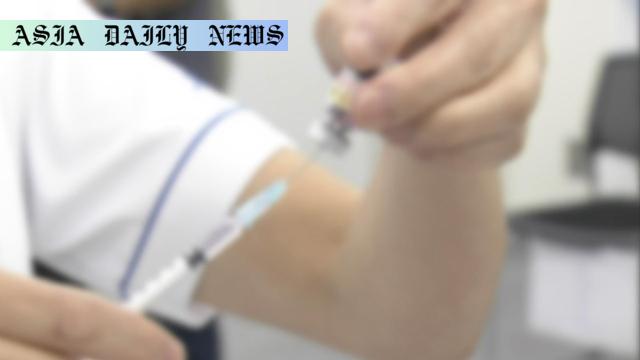Rubella Vaccine Shortage: Medical institutions face severe shortages of rubella vaccines, impacting routine immunizations nationwide.
- Japan is facing a severe rubella vaccine shortage, impacting medical institutions.
- More than 60% of clinics report difficulties ensuring vaccine availability.
- A voluntary recall by a pharmaceutical company in 2024 worsened supply issues.
- Government efforts predict vaccine supply recovery by February 2024.

Overview of the Rubella Vaccine Shortage in Japan
Japan is currently grappling with a significant shortage of the rubella vaccine, creating challenges for medical institutions and the general public. A recent survey conducted by the Tokyo Medical Association in October revealed that over 60% of approximately 1,000 surveyed clinics reported either a ‘severe shortage’ or ‘shortage’ of rubella vaccines. The issue is critical as rubella, also known as German measles, poses severe health risks, especially to pregnant women and their unborn children.
The Health Risks Associated with Rubella
Rubella is a contagious viral infection that can result in high fever, rashes, and other flu-like symptoms. However, the most alarming consequences occur when pregnant women contract the virus. Rubella can lead to congenital rubella syndrome, causing severe birth defects such as hearing impairment, visual disabilities, and damage to vital organs such as the heart. Public health programs prioritize rubella vaccinations, particularly for infants and young children, to prevent outbreaks and protect vulnerable populations.
Causes of the Vaccine Shortage
The vaccine scarcity primarily stems from supply chain disruptions affecting Japan’s domestic pharmaceutical manufacturers. Currently, three companies are responsible for producing and distributing the measles-rubella combination vaccines used in the country’s immunization programs. However, one of these manufacturers announced a voluntary recall of its vaccine as products failed to meet efficacy standards. The company halted shipments starting November 2023, escalating the shortage to unprecedented levels.
Government and Industry Response to the Crisis
To address the shortage, Japan’s Ministry of Health, Labour and Welfare has requested the two remaining pharmaceutical companies to increase production and expedite deliveries. Officials have assured the public that vaccine supply levels are expected to stabilize by February 2024, with production returning to typical levels thereafter. Swift action is deemed essential to ensure adequate supplies for scheduled vaccinations at critical age intervals—one and five to six years old as per Japan’s immunization guidelines.
Consequences for Medical Institutions and Patients
Medical facilities across the nation have reported temporary inability to provide vaccinations due to the limited availability of the rubella vaccines. The scarcity has disrupted routine immunizations, which may lead to gaps in herd immunity. Vulnerable groups such as pregnant women and young children remain at heightened risk, further underscoring the urgency of resolving supply issues.
Long-Term Implications and Prevention Strategies
This shortage highlights the need for robust contingency plans within pharmaceutical supply chains to prevent similar crises in the future. Diversifying vaccine production sources and maintaining sufficient stockpiles can help mitigate the impact of recalls or production outages. Public awareness campaigns that emphasize the importance of vaccinations can also bolster immunization rates, reducing the chances of outbreaks.
Conclusion
While Japan’s rubella vaccine shortage has caused significant challenges, government intervention promises relief in the coming months. The lessons learned from this crisis should encourage improvements in vaccine supply systems, ensuring the continued health and safety of the population. With timely actions and long-term planning, Japan can safeguard its immunization programs against future disruptions.



Commentary
The Importance of Addressing Vaccine Shortfalls
The rubella vaccine shortage in Japan is a stark reminder of the vulnerabilities within healthcare supply chains. Vaccines are not just critical medical tools; they are essential components of any robust public health strategy. Ensuring their consistent availability plays a key role in preserving community health and preventing preventable diseases like rubella from resurfacing.
Impact on Public Health and Vulnerable Populations
One of the most concerning aspects of this shortage is the potential risk to pregnant women and their unborn children. Rubella can cause irreversible health complications, making proactive vaccination efforts paramount. While health authorities are expediting solutions, these delays could have long-lasting implications for those unable to access timely immunizations.
Lessons for the Future
This situation underscores the necessity for governments and pharmaceutical companies to build more flexible, resilient infrastructures. Diversifying suppliers, assessing stock reserves, and improving manufacturing processes can help mitigate future risks. Additionally, public education about the importance of immunizations, backed by trust in vaccine efficacy, remains critical to maintaining public confidence during crises like these.
Despite the challenges, this crisis presents an opportunity for Japan to lead by example, demonstrating how swift intervention and careful planning can address public health emergencies. Hopefully, these efforts will result in a stronger, more reliable vaccination infrastructure for years to come.